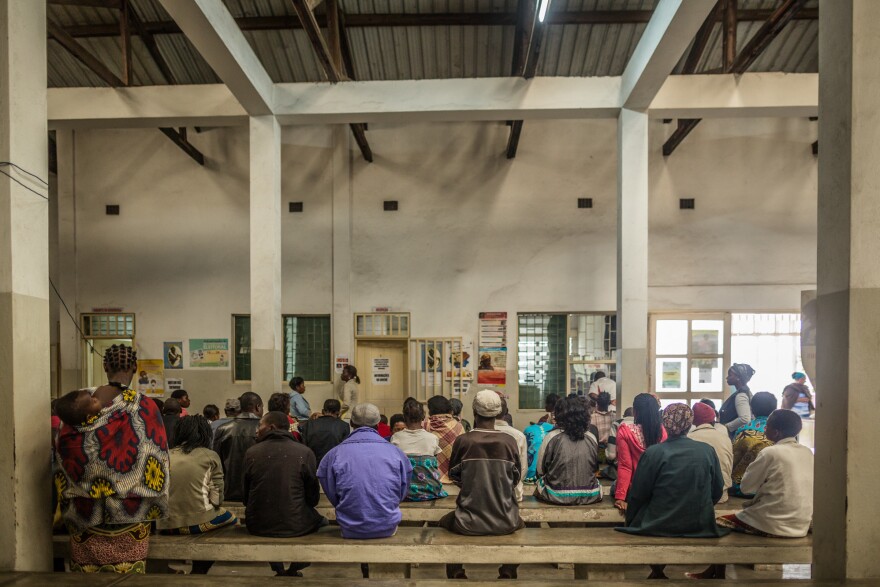"Sometimes they want to keep it secret," she says with a sigh of exasperation.
Dr. Marlen Baroso is talking about the patients she cares for who have HIV.
"I have a case, a woman is taking medication. And her husband is taking medication also." But neither one knows the other is HIV-positive.
"Husband and wife!" she declares. "And this is not the first case."
Even though she cares for thousands of HIV patients, Baroso is not an AIDS doctor. She is a general practitioner at the Munhava health center in the Mozambican port city of Beira. Actually, she is the only doctor at the hospital.
In the morning hundreds of people jam into the reception area, sitting on long wooden benches and waiting to be seen in consultation rooms. Baroso has to deal with all of the ailments, accidents, pregnancies and health crises that come through the doors at Munhava.
But HIV dominates her work.
"Most of the cases are HIV patients," she says. "HIV is a challenge here. We have many, many cases from children to the older people."
She says it's hard to say exactly how many HIV patients they are dealing with. Some refuse to be tested for the virus. Others come with medical issues that might or might not be HIV-related, then never return.
But she manages to come up with an estimate: "We are talking about 15,000 patients" — including those "who are not coming regularly but we had detected HIV in them." She's sitting in her office at the health center. Patient files in manila folders are stacked on her desk next to an erect model of the male anatomy that's used for condom demonstrations.
Roughly a third of all those patients who have tested positive — 5,000 — have been enrolled on daily, antiretroviral treatment to control their HIV. Scores of them come in each day to get bloodwork done. Others have developed complications or tuberculosis and are waiting to be seen by a nurse in another part of the clinic.
Baroso spends almost all of her time managing the patients on antiretroviral drugs and enrolling the newly diagnosed for treatment. Someone who tests positive must visit at least four times over the course of a month for blood tests and counseling sessions before beginning the antiretroviral treatment program — powerful anti-AIDS drugs that have to be taken for life.
But many people in Beira don't show up consistently for medical appointments.
The city, on Mozambique's Indian Ocean, sees long-haul truckers, sailors and merchants come and go. Sex workers are also part of the population.
"Treatment we have. It's not a problem. The problem is to keep the patient here with us," Baroso says.
Southern Africa, including Mozambique, has the heaviest burden of HIV of any region in the world. Millions of people in the area are infected with the virus. The adult infection rate in several countries stands at 20 percent or more. In Mozambique, according to UNAIDS, roughly 10 percent of all adults are HIV-positive.
Baroso says she has the basic tools she needs to manage the HIV cases. She has a lab to monitor the extent of HIV in their blood and drugs to prescribe. What she lacks is time. She can see only about 25 patients a day. And when a mother in the delivery ward goes into distress, Baroso has to drop her HIV cases.
In spite of the stress, she finds moments of joy. "When I test someone and they're negative I get happy because we have so many cases of HIV here," she says. And sometimes she just can't help but be amused by human nature — like the patients who refuse to accept that they could have AIDS: "They don't believe," she says, shaking her head.
Copyright 2020 NPR. To see more, visit https://www.npr.org. 9(MDEwNzczMDA2MDEzNTg3ODA1MTAzZjYxNg004))


